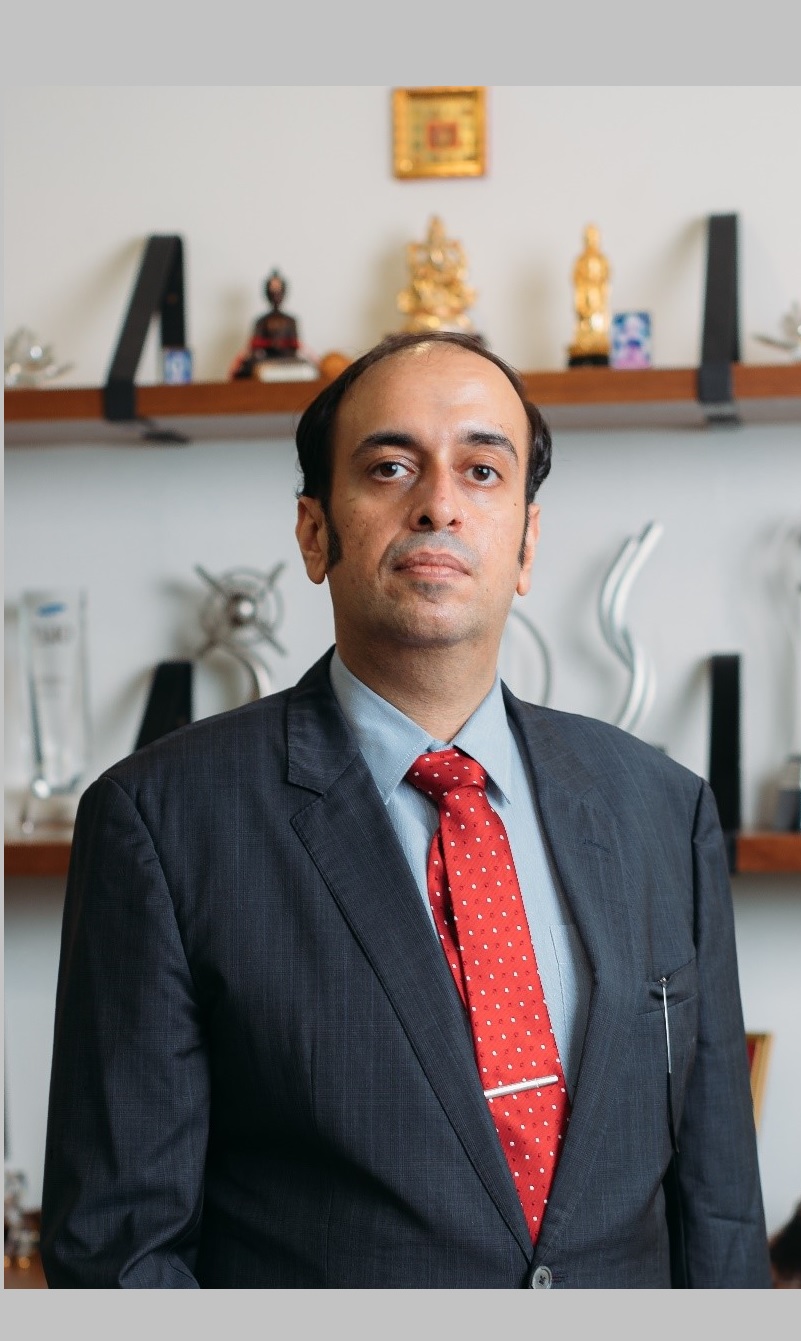Archetypes of leadership
Entrepreneurs are akin to lions because of the big cats’ vitality and strength of character that produces leaders. Experts during the Leadership Panel at 13th WIEF addressed how people may vary but possessed uncommon abilities and a lion’s share of character that could fulfil unique roles in business.
On day two of the 13th WIEF was buzzing with several parallel sessions that featured experts from across the globe who addressed myriad topics relevant to business. One such session was the Leadership Panel which was moderated by Teymoor Nabili, a journalist and broadcaster. It set an objective of Identifying the Archetypes of Leadership and Their Unique Roles in Business. This topic addressed how people were different from each other and possessed unique abilities and leadership styles. The ability to harness these different energies was what made successful teams and organisations. Within any working environment, there were plenty of people with plenty of approaches.
The session discussed the question of: What were these leadership archetypes and how could they best be utilised in business functions?
The speakers for the hour-long session were:
– Dato’ Mohd Izani Ghani, Executive Director of Investments, Khazanah Nasional Berhad, Malaysia
– Glenn Rolfsen, Psychotherapist, Stamina Group, Norway
– Jo Robrechts, Executive Chairman, Triamant, Belgium
– Nico Barito, Special Envoy of Seychelles for ASEAN, Seychelles
Defining a leader’s role
Jo Robrechts, executive chairman of Triamant, prioritised the recruitment process when it came to leading when not everyone was on the same page. His company chose to recruit with a huge diversity in terms of backgrounds and sectors. Basically, a wide range out of their sector or a combination of sectors in terms of experience, age and so forth. ‘People won’t always be on the same page but that is very fruitful. The key thing is we want to have people who have a very open mind and who are flexible in thinking and flexible in the next step in terms of execution, and finally, after the decision, the execution,’ he said. Other values that were important to him were responsibility, integrity and passion.
Dato’ Izani of Khazanah opined that a good leader should be able to identify the strengths of his team. ‘I think it is important for you as a leader, to really identify and develop trust among the team, to do the right thing. It’s tough to do the right thing. [There are] a lot of challenges,’ he said. ‘I think the leader’s role is to create a safe environment for people to bloom,’ Norwegian psychotherapist, Glenn Rolfsen added and continued, ‘Now we’re into ethics and I think that we could also use the concept of leadership in a wider response because we could also say that becoming a good leader, you need to be a good role model. We need to be ethical as leaders, to be ethical at our work place and as grown-ups.’
Glenn believed that either decentralisation and centralised management systems had its own advantages, even in government. ‘The decentralisation system would create a lot of reformation, a lot of autonomy in the local systems, in the staff systems.’ He also brought up how women were also taking on a lot of leadership roles today – more women leadership, more women becoming ministers, becoming prime ministers and presidents. ‘Obviously, there’s a very open door in the global world today [for] women and youth leadership,’ he said.
Developing leaders
When it came to training or developing leaders, according to Jo, it was a constant process of development. He believed that various aspects of leadership need to be fostered, people needed to be motivated or inspired to foster collaborations. Jo stood by a model of ‘dream, think, dare, act, persist and share’ and how leaders of tomorrow needed to have these six attributes – with special attention on dare in this technologically disruptive age that was constantly about seeking opportunities and innovations. ‘It’s about taking risks, of course, calculated risks,’ Jo said. ‘But they have to take new steps. It’s about experimenting and to learn to embrace failure,’ Izani added how understanding a culture is also very important.
When questions on addressing backbiting and internal conflict came from the audience, Glenn expressed how there was less backbiting at a non-profit organisation. Izani tackled it with, ‘Regardless of whether it was at a profit or non-profit organisation, generally, if you have enough tasks for your staff to do, they have no time to backbite.’ Nico replied how leadership could be about reward in the profit sectors but in the non-profit sectors, it could be about the organisation’s vision. ‘Profit organisations talk about targets and revenue, corporate structure, management systems and then about rewards and incentives to staff members. [At] a non-profit organisation, then you are more on a lot of vision and mission.’
The question of how do you identify them based on absolute leadership or more on the creative, and how do you identify the leaders in the Asian context, saw Izani explaining Khazanah’s initiative called Turning Innovation Disruption and Entrepreneurship. It ensured their leaders and team members were aware that disruption can really affect the business and made sure they embraced technology. For them to be aware of how technology could really affect the business and then planned how to address them.
Last words
Jo concluded succinctly when it came to leadership, ‘Being anchored and bonded is, I believe, key for the quality of life and death. Or also key for operating and functioning in a professional environment the right way.’ He continued about decentralisation and how purpose, as well as values, could keep a company together, could keep a professional environment together and could steer it in a certain way. ‘While self-management is stimulated and is a guarantee for bringing up new views, new ideas. Then, about women. We love them. Two out of three within Triamant corporation are women. And that’s not a coincidence. Women bring things to the organisation which often men don’t – angles, ideas, ways of operating, ways of even [holding] a meeting, changes. Finally, with leadership, [it’s] the art of shaping the future together. And together means as a team,’ he added.
A Danish philosopher, Glenn said, wrote a poem about the true art of leading. ‘He said that if one is truly to succeed in leading a person to a specific place, you must first and foremost take care to find him where he is and begin there. So, in order to truly lead someone, [you] must understand more than him but first and foremost, understand what he understands and what he wants.’
___________________
You’ll find a further report on various sessions during 13th WIEF which was held in Kuching, in our Foundation Report 2017 which you can download.
Photo Credit by Nashad Abdu on Unsplash.





